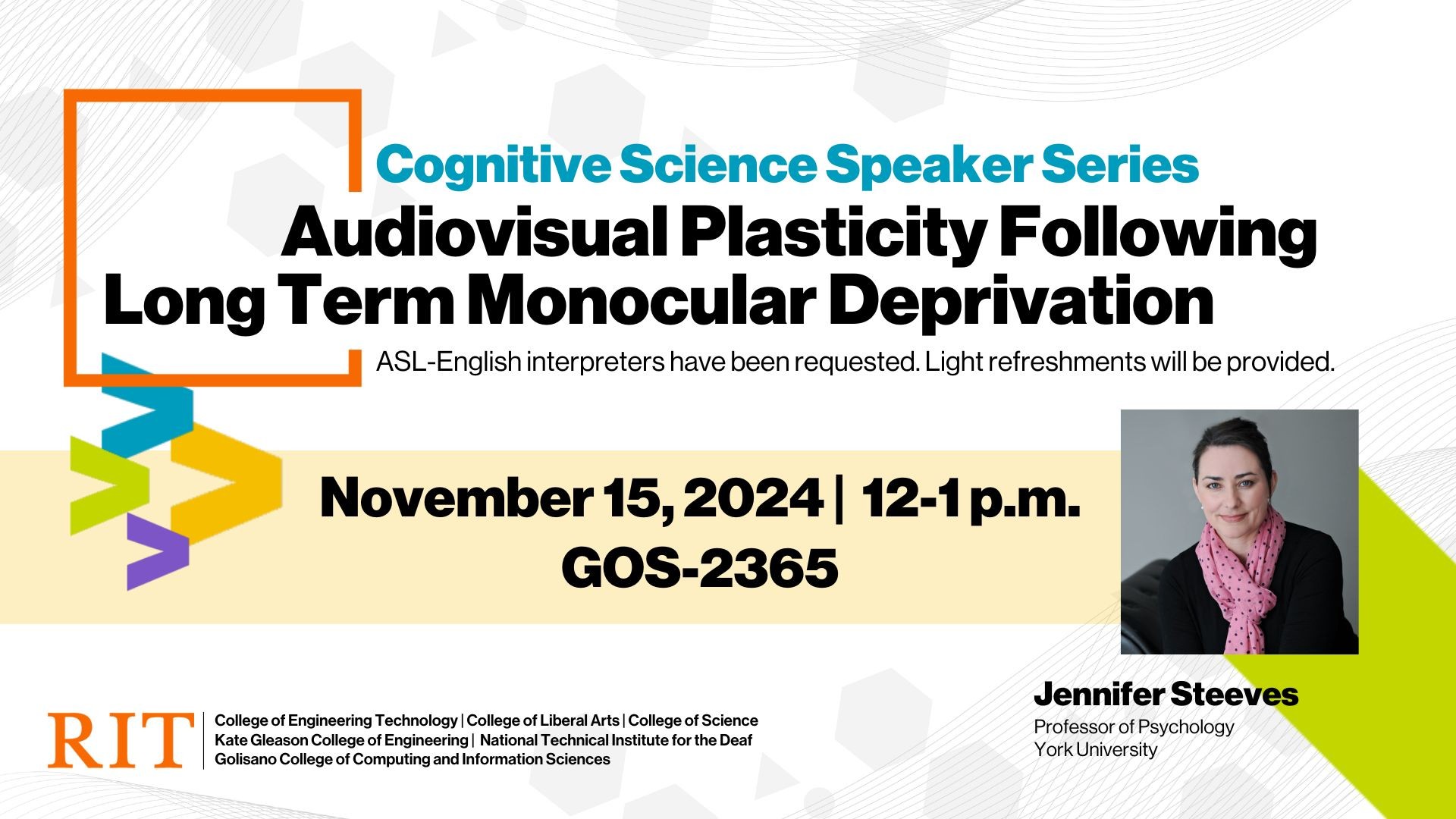Cog Sci Speaker Series: Audiovisual Plasticity Following Long Term Monocular Deprivation

Presenter: Prof. Jennifer Steeves (York University)
Title: Audiovisual Plasticity Following Long Term Monocular Deprivation
Abstract: Retinoblastoma is a rare childhood cancer of the retina that often is treated by surgical removal of the affected eye. This provides a unique model for examining the consequences of long-term monocular deprivation on sensory systems. Despite the loss of binocular depth perception and a small portion of the visual field, we have found that vision is quite intact with only small deficits in motion perception. How might other sensory systems adapt to the loss of binocular vision? I will present data showing sound localization is actually better than that in binocular controls and that individuals with one eye are less susceptible to audiovisual illusions. Anatomical and functional neuroimaging also shows reorganization of visual, auditory and audiovisual systems that may support these changes.
Bio: Jennifer Steeves is Professor in the Department of Psychology at York University and a member of York’s Centre for Vision Research. She holds a York Research Chair in non-invasive visual brain stimulation. In broad terms, she studies visual plasticity in patient groups and how to induce plasticity and potentially mitigate certain visual disorders of cortical origins with non-invasive brain stimulation such as transcranial magnetic stimulation (TMS). She is currently serving as associate vice president for research.
Event Snapshot
When and Where
Who
Open to the Public
| Cost | FREE |
Interpreter Requested?
Yes









